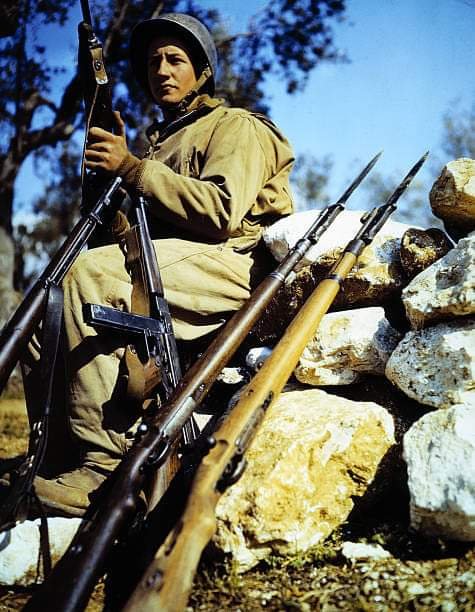Medal of Honor: Charles E. Kelly, World War II , September 13, 1943
Kelly was no stranger to danger, but that day he went beyond all reason. First, he volunteered to join a small patrol tasked with locating and destroying German machine gun positions that had pinned the battalion.
September 14, 2025

 Charles E. Kelly
Charles E. Kelly
World War II
September 13, 1943 – Altavilla, Italy
The First Infantry Division Medal of Honor of WWII
On 13 September 1943, in the hills near Altavilla, Italy, the men of the 36th Infantry Division were locked in a brutal struggle to secure the Salerno beachhead. The landings, just days before, had been met with ferocious German resistance—snipers, mortars, and artillery raining down on every approach. Amid this chaos stood one soldier from Pittsburgh: Corporal Charles E. Kelly, who would earn the nickname that followed him for life—“Commando Kelly.”
A Volunteer for the Impossible
Kelly was no stranger to danger, but that day he went beyond all reason. First, he volunteered to join a small patrol tasked with locating and destroying German machine gun positions that had pinned the battalion. Crawling, sprinting, and firing through open ground, Kelly and his comrades neutralized the nests. Then, without pause, he volunteered again—this time to make contact with another American battalion believed to be holding Hill 315. The trek was a mile-long gauntlet of fire. Mortars exploded around him, artillery shredded the air, and snipers hunted from the ridgelines. Still, Kelly pressed forward, and when he returned, his news was grim: the hill was not friendly ground but fully occupied by organized German forces. His intelligence likely saved countless lives from stumbling into a death trap.
 Alone in the Storehouse
Alone in the Storehouse
Later that day, with German counterattacks threatening to collapse the regiment’s flank, Kelly was assigned to defend the rear of a storehouse—alone. Through the long night he held his ground, rifles braced in shattered windows, eyes fixed on the black fields where German soldiers pressed closer. At dawn, the assault came. One by one, machine gunners at his post were killed or wounded, leaving Kelly alone at the window. Undeterred, he fired with deadly precision until his weapon locked from overheating. Snatching up a second automatic rifle, he poured fire until that too jammed. Out of conventional options, Kelly turned to desperation and creativity—grabbing 60mm mortar rounds, yanking the pins, and hurling them like grenades. Five Germans fell in quick succession.
When German defenses stalled the 36th Infantry Division in the hills near Altavilla, one soldier from Pittsburgh stepped forward again and again. Corporal Charles E. Kelly volunteered for the most dangerous jobs—patrols to destroy machine gun nests, lone runs under fire to relay information, and finally, a desperate stand in a storehouse where he held off waves of attackers with rifles, grenades, mortar shells used as hand grenades, and even a rocket launcher. His courage broke enemy assaults that had resisted three days of attacks, inspired his comrades, and earned him the title “Commando Kelly,” the first Medal of Honor recipient of the European Theater.
Medal of Honor Citation
For conspicuous gallantry and intrepidity at risk of life above and beyond the call of duty. On 13 September 1943, near Altavilla, Italy, Cpl. Kelly voluntarily joined a patrol which located and neutralized enemy machinegun positions. After this hazardous duty he volunteered to establish contact with a battalion of U.S. infantry which was believed to be located on Hill 315, a mile distant. He traveled over a route commanded by enemy observation and under sniper, mortar, and artillery fire; and later he returned with the correct information that the enemy occupied Hill 315 in organized positions. Immediately thereafter Cpl. Kelly, again a volunteer patrol member, assisted materially in the destruction of 2 enemy machinegun nests under conditions requiring great skill and courage. Having effectively fired his weapon until all the ammunition was exhausted, he secured permission to obtain more at an ammunition dump. Arriving at the dump, which was located near a storehouse on the extreme flank of his regiment’s position, Cpl. Kelly found that the Germans were attacking ferociously at this point. He obtained his ammunition and was given the mission of protecting the rear of the storehouse. He held his position throughout the night. The following morning the enemy attack was resumed. Cpl. Kelly took a position at an open window of the storehouse. One machine gunner had been killed at this position and several other soldiers wounded. Cpl. Kelly delivered continuous aimed and effective fire upon the enemy with his automatic rifle until the weapon locked from overheating. Finding another automatic rifle, he again directed effective fire upon the enemy until this weapon also locked. At this critical point, with the enemy threatening to overrun the position, Cpl. Kelly picked up 60mm. mortar shells, pulled the safety pins, and used the shells as grenades, killing at least 5 of the enemy. When it became imperative that the house be evacuated, Cpl. Kelly, despite his sergeant’s injunctions, volunteered to hold the position until the remainder of the detachment could withdraw. As the detachment moved out, Cpl. Kelly was observed deliberately loading and firing a rocket launcher from the window. He was successful in covering the withdrawal of the unit, and later in joining his own organization. Cpl. Kelly’s fighting determination and intrepidity in battle exemplify the highest traditions of the U.S. Armed Forces.

 Alone in the Storehouse
Alone in the Storehouse